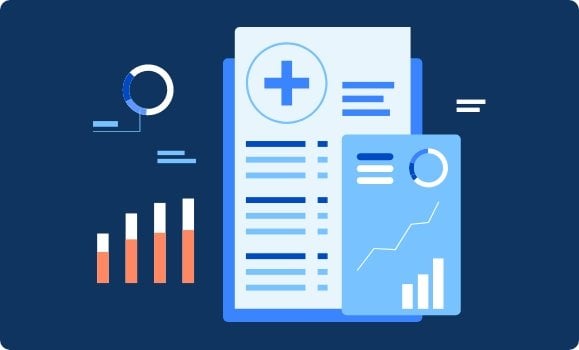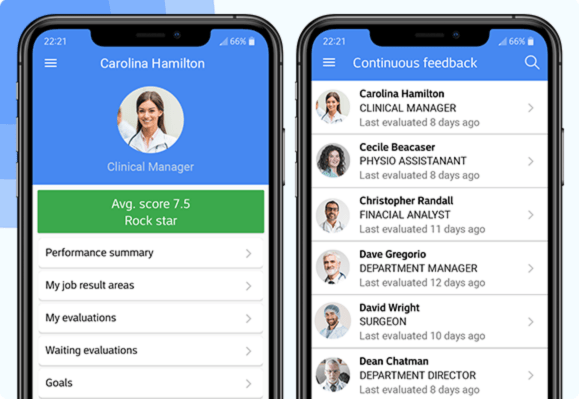 A. Industry background
A. Industry background
The healthcare sector (sometimes referred to as the medical sector or health economy) comprises businesses and organizations that create products and services designed to improve patients’ health. Healthcare organizations specialize in one of the four areas of the healthcare life-cycle: curative, preventative, rehabilitative, and palliative care, although there is considerable overlap between these areas.
B. Key challenges
A recent report by Deloitte highlighted several key challenges in the healthcare sector
Rising health care costs: Global health care spending is forecast to grow at a CAGR of 5% between 2019 and 2023.
Changing patient demographics: The growing and aging population is placing increasing demands on the sector.
Evolving consumer expectations: Patients are no longer passive participants in healthcare and expect transparency, convenience, access, and personalized products and services. Technologies such as cloud computing, 5G, Natural Language Processing, and the Internet of Medical Things will need to be developed to align healthcare delivery with consumer preferences.
Newmarket entrants: Digital-first health solution providers are disrupting the process, offering more user-friendly and easier ways to deliver healthcare.
Complex health and technology ecosystems: Need to be developed to cope with the necessary evolution of the healthcare model.
As a result of this, healthcare stakeholders need to invest in value-based care, innovative care delivery models, advanced digital technologies, data interoperability, and alternative employment models to prepare for these uncertainties and build a smart health ecosystem.
However, the significant growth in digitization of healthcare is hampered by outdated legacy platforms, cost and complexity of new technologies, and continuously evolving business needs.
A widening demand-supply gap of skilled professionals (physicians and nurses in particular) creates immediate challenges for public and private health systems. Therefore, investment in human capital development has become the top priority of the healthcare leaders.
 C. Solutions offered
C. Solutions offered
AssessTEAM helps healthcare organizations develop and maintain a world-class care delivery model by focusing on employee development, thanks to the following core features.
1. Smart device-based continuous feedback: AssessTEAM’s Continuous feedback feature allows healthcare organizations to establish a real-time feedback system for staff, caregivers, and doctors working with each other. The on-demand feedback brings more transparency and improves team coordination by identifying the key strengths and areas of employee development, covering both the technical and the behavioral aspects of their job.
2. Evaluation of healthcare professional competencies: 21st-century medicine requires that healthcare staff have a set of professional competencies such as patient-centered care, work in interdisciplinary teams, evidence-based practice, etc… AssessTEAM allows managers to choose from a library of thousands of KPIs, (which can be customized if needed), and quickly assign them to staff, enabling them to track and evaluate professional competencies in their healthcare team.
3. Evaluation of patient outcomes: AssessTEAM can help improve key patient outcomes. Users can quickly enter their medical KPIs (Mortality, Safety of Care, Readmissions, Patient experience, Effectiveness of Care, Timeliness of care, etc..) into the system or customize existing ones. AssessTEAM lets you track and evaluate staff performance against these key metrics on a continuous basis or whatever frequency you require.
4. Patient satisfaction survey: AssessTEAM contains a survey creation and delivery tool that enables healthcare units to monitor and evolve their service delivery in line with patient expectations. The graphical reports empower management to carefully analyze patients’ satisfaction levels and provide insights to improve service delivery.
5. Security with 256-bit encryption: With the digitization of healthcare, cybersecurity is considered to be a prime concern. Data or system breaches anywhere in the healthcare value-chain can have a catastrophic impact on patient trust. You can rest assured that all data processed with AssessTEAM is secure and safe from data breaches due to its 256-bit security encryption making it one of the most secure data encryptions methods available.
6. Cloud-Based System (for easy access anywhere): Healthcare organizations are having to engage with and adopt alternative employment models to deliver transformation in an environment of evolving business needs. The new agile delivery teams emerging in the healthcare sector can use AssessTEAM’s entirely cloud-based real-time appraisals system on any internet-connected computer or mobile device. Our highly automated performance management process enables you to appraise your fixed and flexible resources in a 360-degree format, which is essential for agile healthcare organizations.
7. Simple reporting for all: From hospital managers and department heads, every manager has access to performance stats on their fingertips, instead of looking through spreadsheets or presentations. Simple data-driven reports help managers get the most out of their teams for the best patient outcome possible.
 C. Solutions offered
C. Solutions offered

